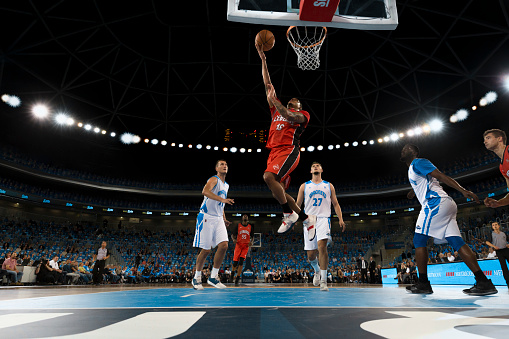The legal interest in CBD has grown among the general public since the Farm Bill was enacted. Numerous professionals (e.g. soccer players, marathon runners, boxers) have begun to take cannabidiol, irrespective of the absence of published research. Cannabis or marijuana is prohibited for competitive athletes in all sports since 15 years ago, the World Anti-Doping Agency took over the maintenance and listing of prohibited drugs in sports. In 2018, however, cannabidiol was removed from the banned list after evidence that even at acute doses a day, no harmful effects have been demonstrated in people.
Can CBD help the performance of athletics?
The quest for performance-enriching chemicals is endless and difficult for high-level athletes and those of you who aspire to attain such altitudes. Supplements must comply with anti-doping legislation, be safe and ideally natural.
The NuLeaf Naturals CBD products now create waves among athletes who claim advantages as diverse as faster injury regeneration, peaceful sleep and decreased muscular discomfort.
While many organizations see cannabis as an illegal drug, THC as the other major cannabinoid, the World Anti-Doping Agency allows pure cannabidiol isolate to be used. It is an anti-inflammatory, neuroprotective, anti-anxiety and analgesic non-intoxicating cannabinoid, which may constitute a legal, game-changing supplement.
CBD and sports performance anxiety
Sports performance anxiety (SPA) is often harmful because of loss of sleep, poor appetite, and increased energy use. The recommended treatment choice is cognitive-behavioural therapy.
Several clinical studies have investigated the effects of cannabidiol on anxiety, paranoia, and stress, with encouraging results, especially in settings of “manufactured stress” such as the public. Small-scale studies have shown
that a high dosage of CBD increases sleep time in those with insomnia, but not necessarily sleep quality. In general, however, research provides contradictory findings of cannabidiol and sleep.
Overall results may not necessarily reflect the impact of cannabidiol on athletic performance, perhaps because of individual responses variations. However, it seems promising to use cannabidiol for pre-competition anxiety (together with behavioural treatments) for future research.
How might CBD assist you with training and exercise?
The evidence is clear whether you choose to start exercising hard or if you are a committed athlete: CBD can help you accomplish while you’re training and recuperate. In addition, it may assist in regulating your body’s reaction, whether you experience pain, inflammation, and decreased quality of sleep, and even stress, so you receive the greatest benefits from your workout.
Other benefits of CBD for Sports Performance
Besides working on anxiety, CBD also benefits the performance of athletes in numerous ways.
CBD and Bone Health
Various research has examined the general effects of cannabidiol on bone health, which are important for sports performance. Cannabidiol has enhanced the recovery of femoral fractures in rats via reduced inflammation and bone reabsorption and induced deposition of the bone matrix. The results provide early evidence that cannabidiol may have beneficial repercussions on healing from bone damage.
CBD and cardiovascular/metabolism
Cannabidiol has been demonstrated to affect vascular function under laboratory settings through preclinical studies. It reduces the tension of blood vessel walls (vasorelaxation) and limited arteries. However, other results do not indicate an impact on cardiac rest or blood pressure.
There is a paucity of scientific research evaluating particular cardiovascular consequences in practice. However, early studies indicate that CBD may enhance mitochondrial activity (the cell’s energy-producing effect), which can affect energy metabolism during practice.
CBD and concussion protection
Concussions are a frequent injury in full-contact sports and are linked to long-term neurological diseases and even suicide.
Cannabidiol may help reduce the consequences of repeated concussions. It protects neurons by decreasing excitotoxicity, oxidative stress, and inflammation.
Conclusion
Cannabidiol has been shown to have a variety of physiological, biochemical, and psychological benefits on active athletes that may help them perform better. For example, there is strong evidence that cannabidiol has analgesic, neuroprotective, and anti-inflammatory properties and may help prevent muscle damage caused by inflammation and promote the recovery of severe skeletal injuries.
Reference Link:
· https://treatmentwithcbd.com/cbd-sport-performance/
· https://trytranquil.net/cbd-and-sports-performance/
· https://www.purityhempco.com/cbd-and-sport/









